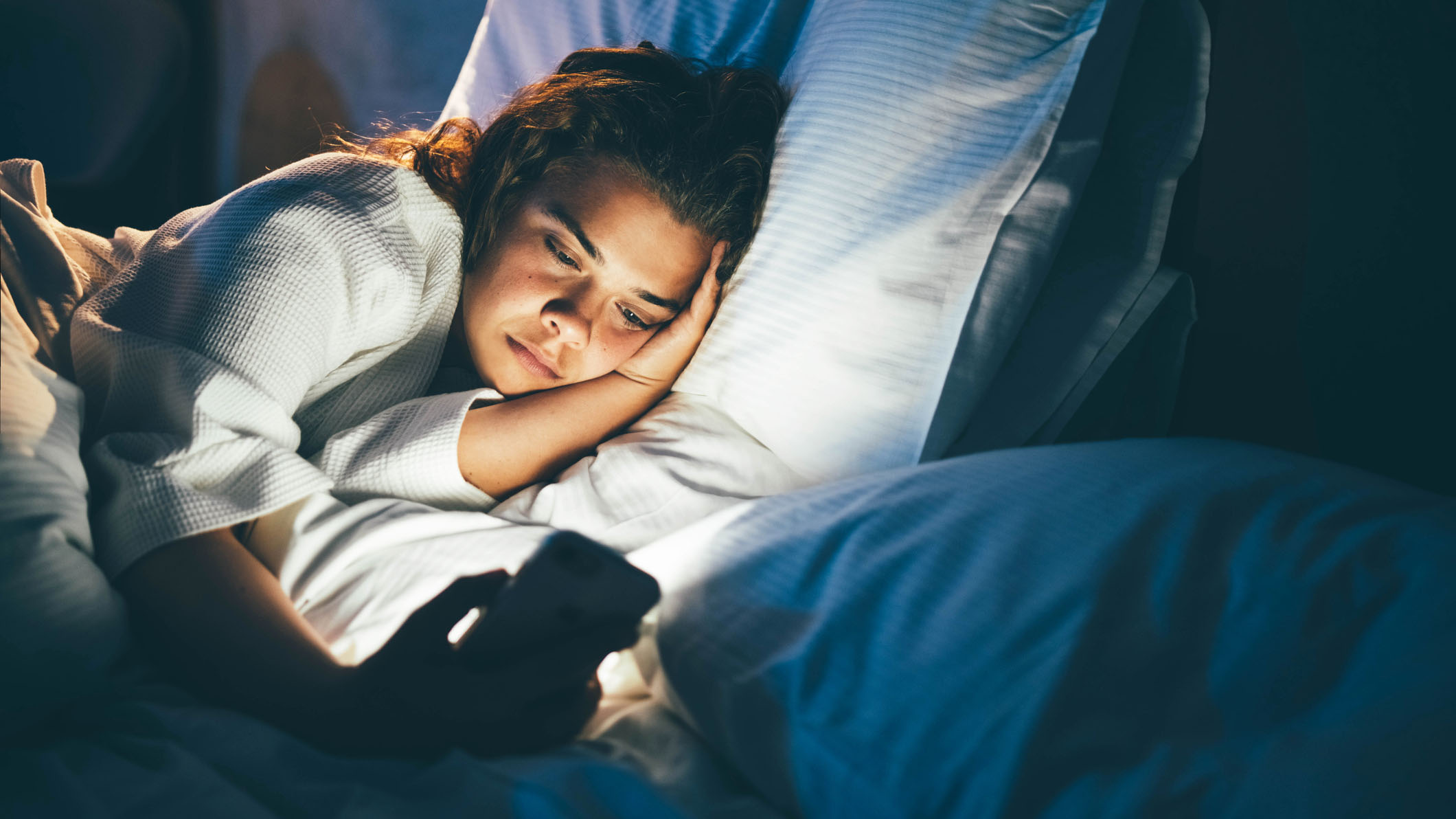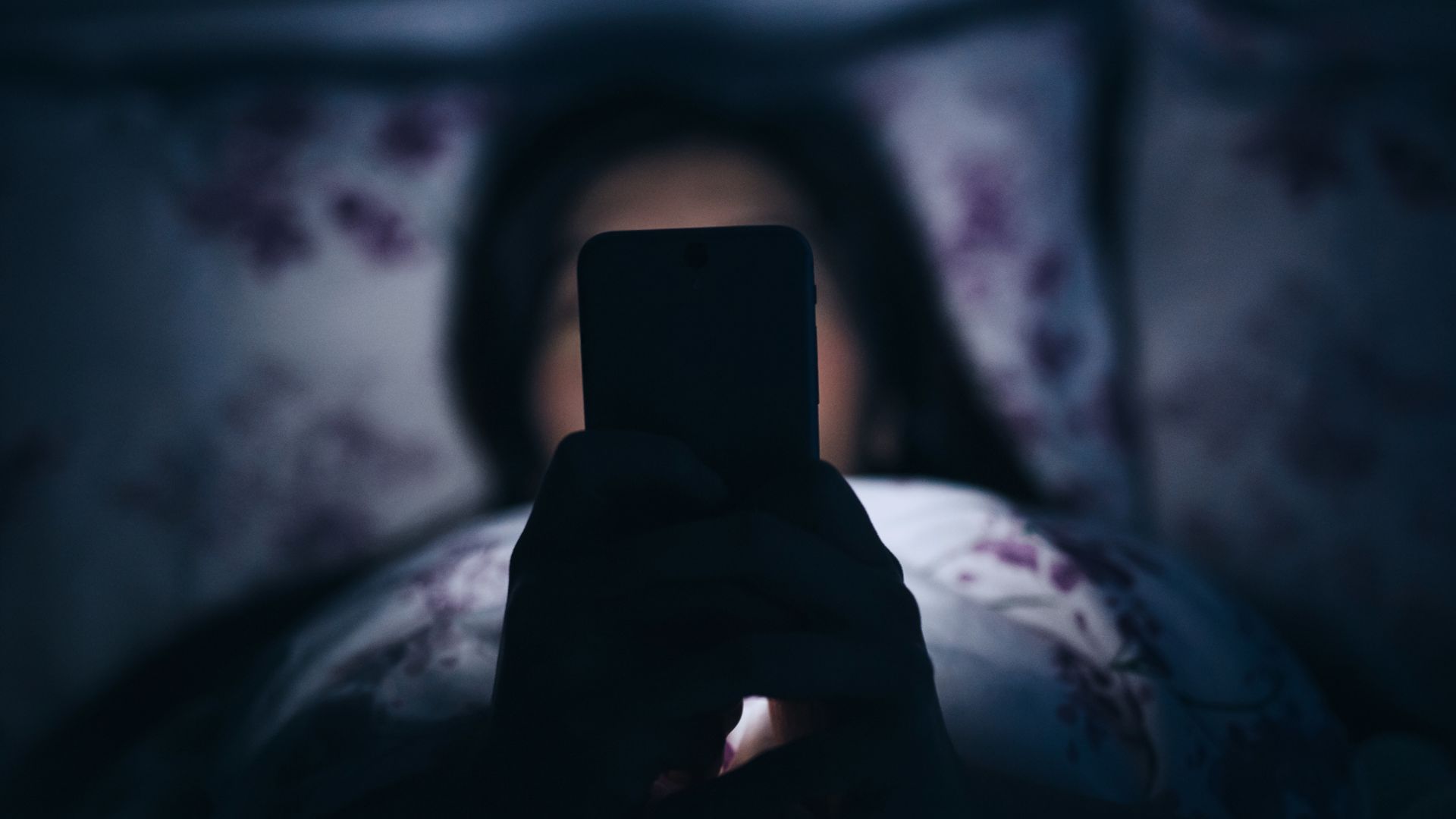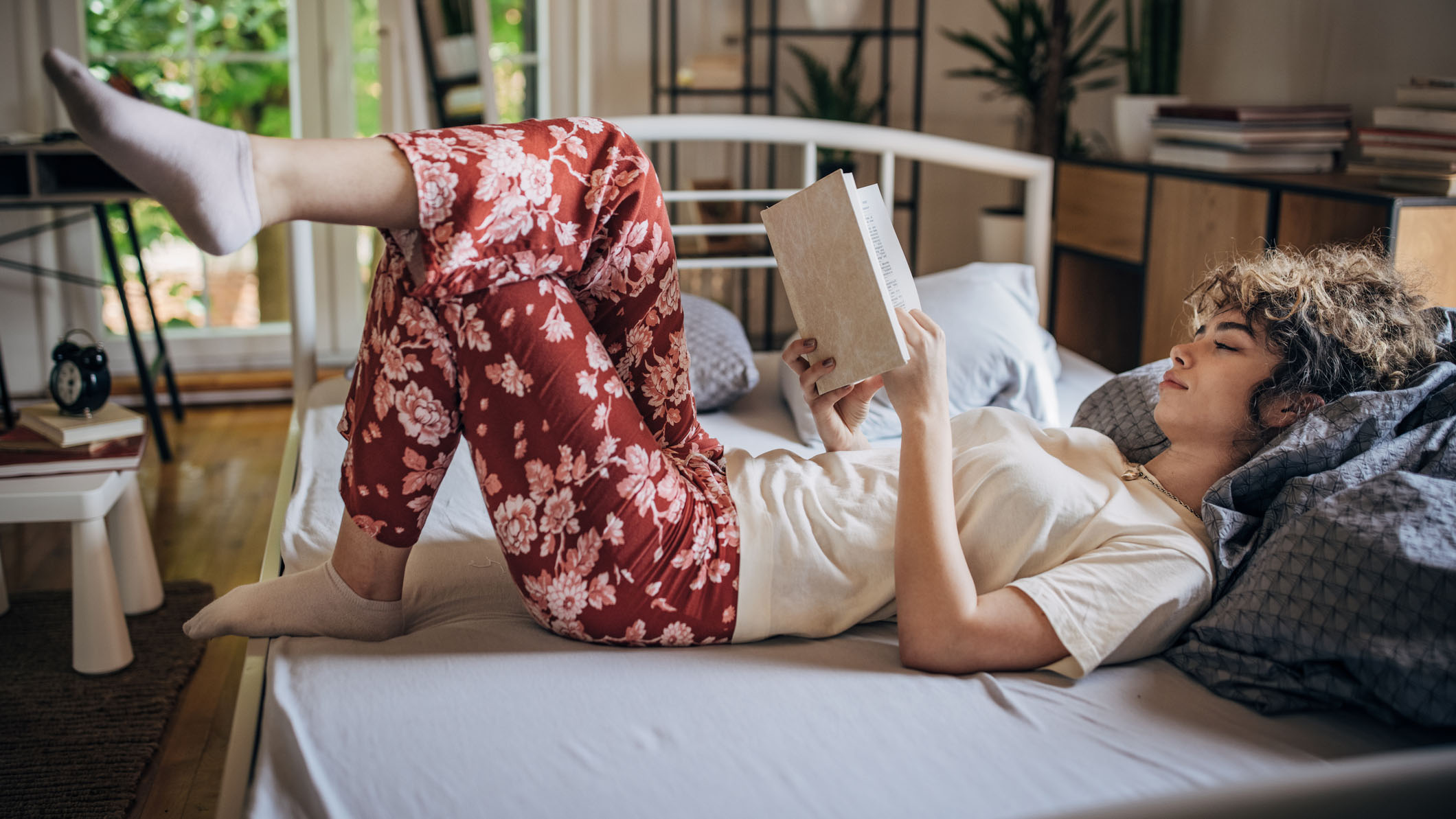Can't sleep? 1 hour of screen time in bed increases insomnia by 59%, study shows
New study links poor sleep quality with screen usage at bedtime — here's why, plus how to break the habit

Doomscrolling before bed is a common night time habit, but it could be wreaking havoc on our sleep quality. A new study has linked using screens while in bed with shorter overall sleep duration and an increase in insomnia.
The findings, published in the medical journal Frontiers of Psychology, found that every hour spent using a screens in bed cuts our overall sleep duration by 24 minutes. What’s more, the risk of insomnia increases by 59% per every hour spent on screens before bedtime.
Key takeaways from the study
- New study links screen usage with poor sleep quality and duration
- 1 hour of screen time in bed cuts overall sleep duration by 24 minutes
- Insomnia levels also increase by 59% per every hour using a screen
These latest findings are the result of surveying the night time habits of over 45,000 Norwegians within the young adult demographic. The results were the same across all screen usage, regardless of the specific media consumed.
“The type of screen activity does not appear to matter as much as the overall time spent using screens in bed,” explained Dr Gunnhild Johnsen Hjetland, the Norwegian Institute of Public Health and the lead author of the study.
“We found no significant differences between social media and other screen activities, suggesting that screen use itself is the key factor in sleep disruption — likely due to time displacement, where screen use delays sleep by taking up time that would otherwise be spent resting.”
How using screens in bed impacts sleep quality
This study suggests that screen usage in bed affects our sleep in four specific ways; sleep disturbances from notifications, reduced sleep duration from using screens in bed, an increase in sleep latency (the time it takes to fall asleep.) Plus, the blue light emitted from screens supresses melatonin levels, the 'sleep hormone' our brains produce in the run up to bed time.

The study focused on the the night time habits of 45,202 Norwegian participants aged between 18-28 years old. All study participants were in full time higher education. Participants were asked whether they used screens in bed, what media they consumed, and to report their wake and sleep time, plus how long it took to fall asleep.
For the purpose of this study, insomnia was categorised as a minimum of three episodes of trouble falling asleep and daytime drowsiness per week for a duration of at least three months.
When to stop using screens before sleep
This study suggests that using screens in bed can impact sleep quality and duration, but how long before bedtime should you turn off your devices?
“If you struggle with sleep and suspect that screen time may be a factor, try to reduce screen use in bed, ideally stopping at least 30–60 minutes before sleep,” suggests Hjetland. “If you do use screens, consider disabling notifications to minimize disruptions during the night."
If screentime is part of your current bedtime routine and you feel it could be impacting your sleep quality, consider adopting the alternatives below.
- Read more: What is blue light? Experts share real effect on sleep plus top tips to reduce its impact
How to break the pre-bed screen time habit
Whether you're doomscrolling on your phone as part of revenge bedtime procrastination or you like to watch TV in bed before nodding off, this latest study supports what we all long suspected — that using screens in bed means poorer sleep quality.
Thankfully, there's plenty of other ways to decompress before bedtime that can improve the quality of your slumber. From reading to sleep meditations, these are out top three recommendations...
Get instant access to breaking news, the hottest reviews, great deals and helpful tips.
1. Reading

Swapping screens for a book is an excellent way to create a calming nighttime routine, as well as alleviating nighttime stress and anxiety. Studies suggest that reading for six minutes before bed can help reduce stress levels by as much as 68%.
If the temptation of one-last-look at your phone is still too much, placing your phone on charge in a separate room will help curb the habit.
2. Listen to a podcast
Life is busy and scrolling on our phones late into the night is often the only time we have to catch up on the daily news cycle. However, not only does the blue light from our screen supress melatonin levels (which is required to help ready our bodies and mind for sleep), but consuming news can be overstimulating.
Instead, we suggest listening to a podcast. It can be educational and informative, and you won't feel tempted to ricochet from one subject to another. That's good news for your focus, plus your sleep quality.
3. Sleep mediation

Instead of overstimulating your brain with negative news, endless images and flashing lights, a calming sleep meditation will help quieten your mind and lull you into a peaceful slumber. Among our favorites include the military sleep method and the 4-7-8 method.
It may take a bit of practice before finding the right meditation for you, but a practice that includes a combination of visualisation, calming breathing exercises and progressive muscle relaxation will help you fall asleep fast — and no screens required.

Nicola is the Sleep Editor at Tom’s Guide, where she helps steer the mattress and sleep content published on Tom’s Guide, including our Best Mattress for Back Pain buying guide. With a career in journalism spanning the best part of two decades, Nicola brings experience to the team and the knowledge of what makes a great article, whether that’s a how-to mattress cleaning feature, a deep dive into melatonin gummies, or an in-depth mattress review. As a sleep editor, few better understand how important a decent mattress is to the overall quality of our sleep, and precisely how our sleep impacts our physical and mental health. As well as tackling the vast topic of sleep, Nicola joins the raft of expert mattress specialists at Tom’s Guide, who test and compare a wide range of mattresses in order to guide readers towards the very best options on the market.
You must confirm your public display name before commenting
Please logout and then login again, you will then be prompted to enter your display name.
